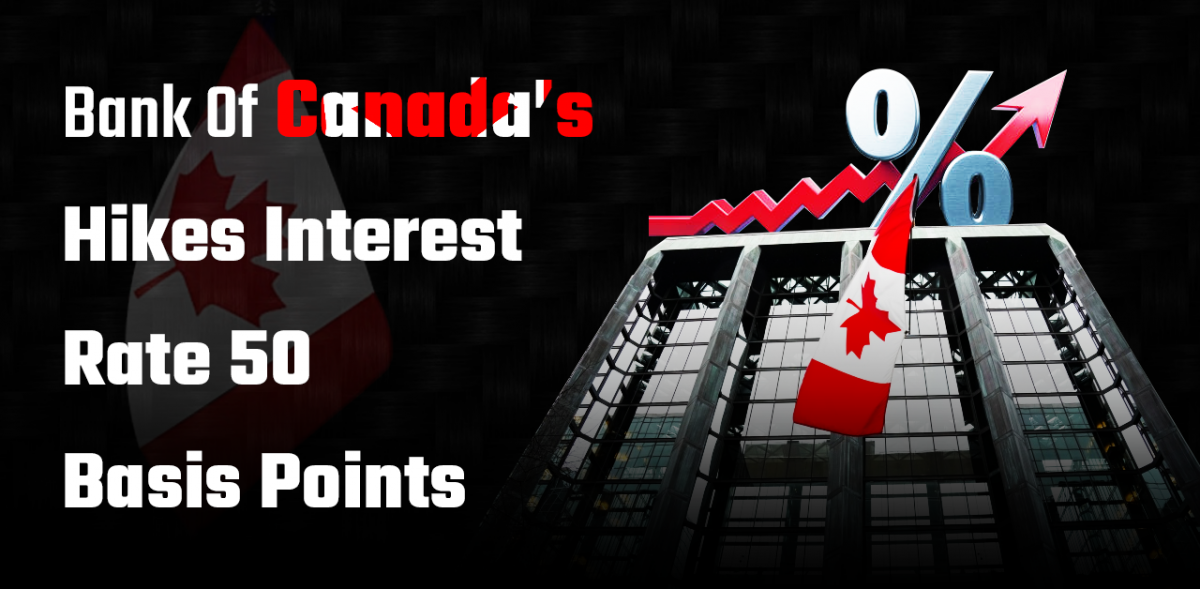Bank Of Canada’s hikes interest rate 50 basis points
BoC hikes by 50 bps to 4.25%, bringing cumulative tightening to 400 bps this year.
Slightly hawkish surprise, consensus was split between 25 and 50 bps.
Soft tightening bias opens the door to a January pause.
The BoC lifted its overnight rate by 50 bps to 4.25%, a stronger increase than the 25 bps which was expected. Consensus was almost evenly split between a 25 and 50 bp hike though market pricing was leaning toward the former, so yields have increased and the Canadian dollar is a touch stronger in the wake of the decision. The policy statement wasn’t as hawkish as the decision itself, in fact the BoC’s updated forward guidance features a softer tightening bias than we expected. Rather than suggesting the ”the policy interest rate will need to rise further, today’s guidance is that “ Governing Council will be considering whether the policy interest rate needs to rise further”. That clearly opens the door to a pause as soon as the next meeting in January, and in our view frames that decision as between 0 and 25 bps.
There’s plenty of data in the next seven weeks that will influence that January decision – Two CPI report, another month’s GDP and jobs data, and the bank’s quarterly BOS and CSCE surveys. Today’s larger-than-expected hike was due in part to strong labor market data since the October meeting. Indeed, the statement noted ”Canada’s labor market remains tight, with unemployment near historic lows.” One jobs report isn’t likely to change that story, but a soft December LFS would help build the case for a pause. And since the labor market is generally a lagging indicator, another muted increase in monthly GDP could also help push the BoC to the sidelines. The bank reiterated its view that growth will essentially stall in the coming quarters.
The BoC is also likely to be watching changes in financial conditions over the next seven weeks. 5-year BoC bond yields were down 75bps in the month leading to today’s decision- an easing in financial conditions that may have caused some discomfort and motivated yesterday’s 50 bp hike. A further decline in yields could prompt push-back from the BoC, either through another hike in January or emphasis that rates will have to remain high for an extended period. We expect a challenging consumer backdrop and ongoing pullback in housing will see Canada’s economy slip into recession in the first half of 2023. But with inflation remaining elevated, the BoC isn’t likely to react as quickly to that slow down as it has recent cycles.

.webp)



